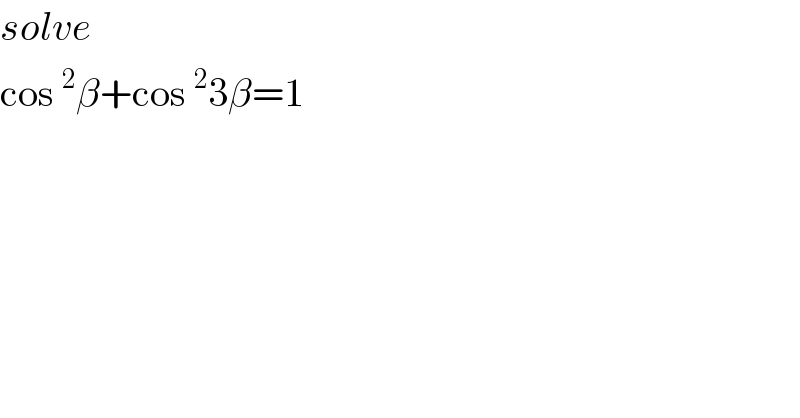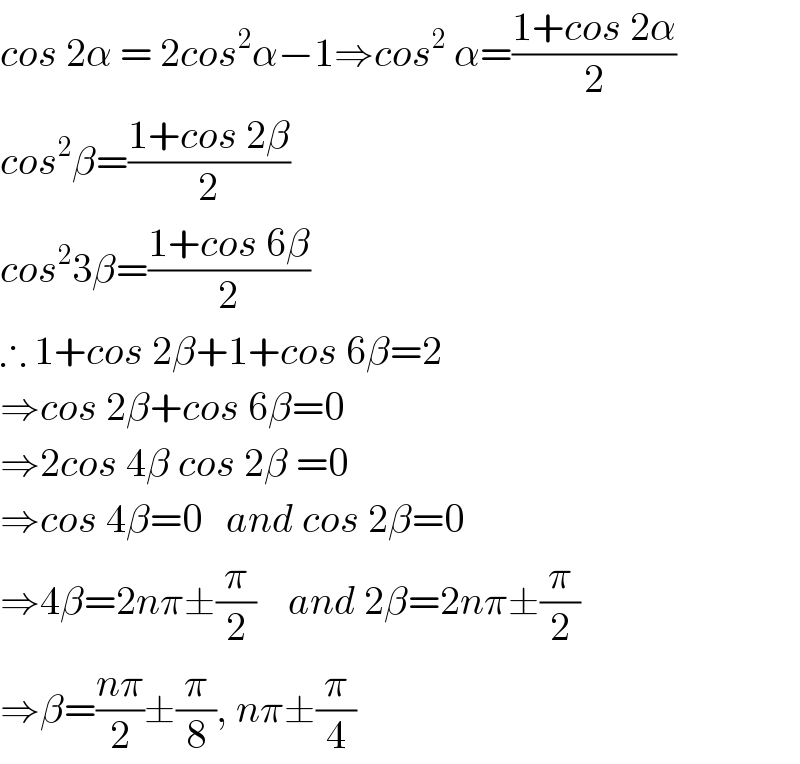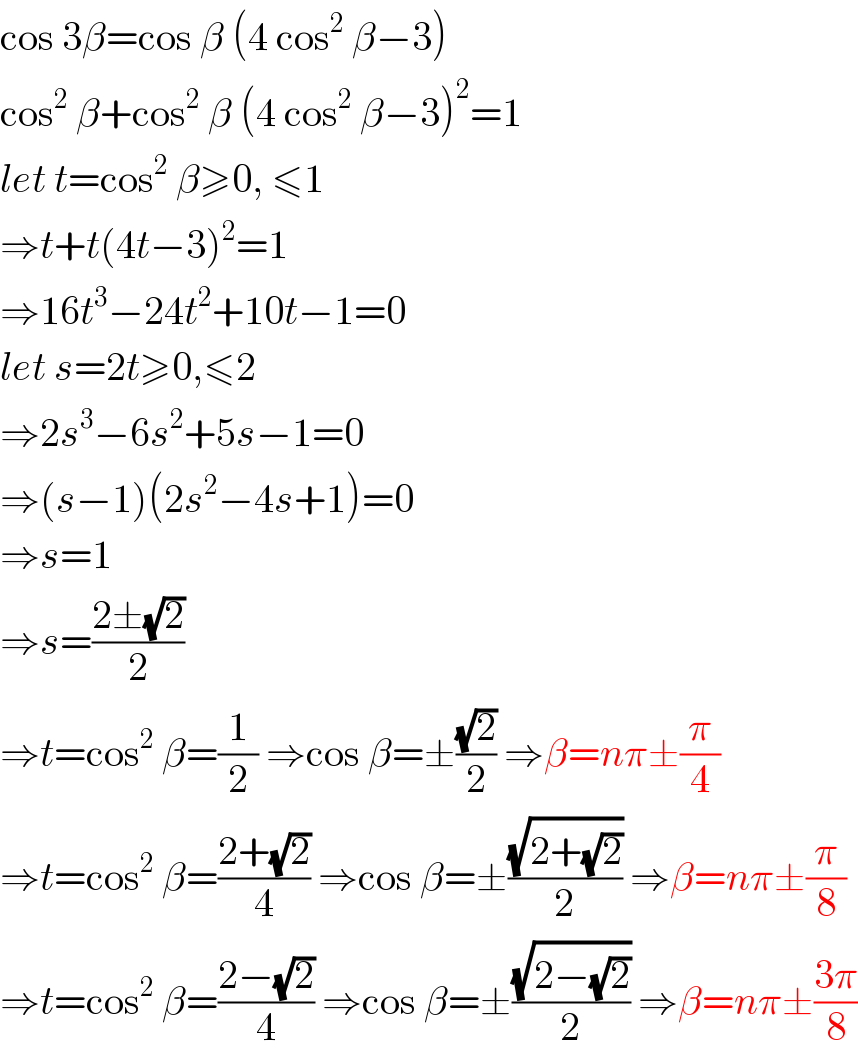
Question and Answers Forum
Question Number 70597 by Maclaurin Stickker last updated on 06/Oct/19

Answered by Kunal12588 last updated on 08/Oct/19

Commented by mr W last updated on 06/Oct/19

Commented by mathmax by abdo last updated on 06/Oct/19

Commented by Kunal12588 last updated on 08/Oct/19

Answered by mr W last updated on 06/Oct/19

Answered by Rasheed.Sindhi last updated on 06/Oct/19

Answered by ajfour last updated on 06/Oct/19

